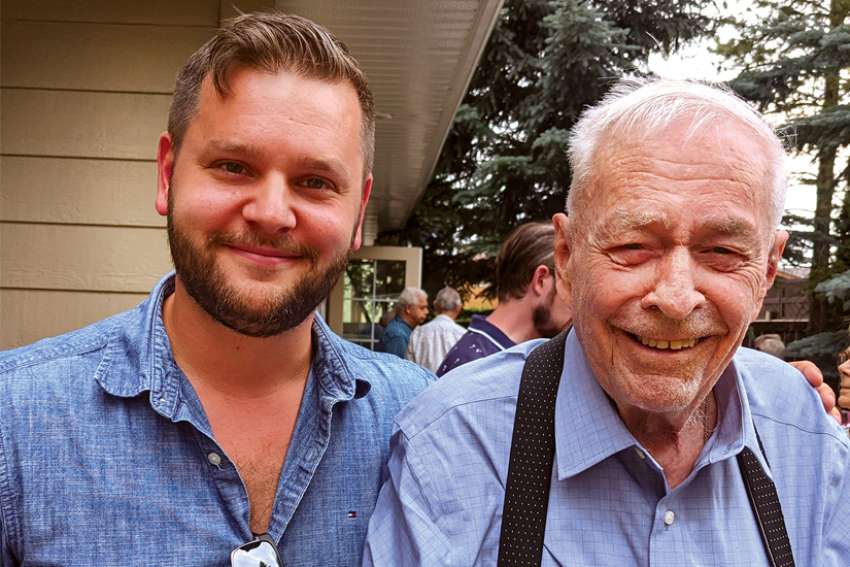Edward “Ted” Bartlett Byfield died at 93 on Dec. 23 in his Edmonton home, attended to by his family. Although many younger Canadians may not be familiar with his work, Mr. Byfield was a titan of the country’s journalism and politics.
But Mr. Byfield was beloved by many Canadian Christians for far more than his stature as a standard bearer of the West. He was the unwavering voice of Christian conviction, speaking for the millions of Canadians despised and scorned by mainstream politics, culture and media. He unapologetically championed the moral values of orthodox Christianity, standing his cultural ground even as it began to cave away.
“If adultery or homosexuality is wrong in the sight of God, then all the task forces in Christendom aren’t going to make it right,” he wrote. “If God is timeless and changeless, then human conduct considered wrong in the eighth century is just as wrong in the 20th.”
Born in 1928, Mr. Byfield’s worldview was shaped by his childhood growing up in Toronto during the Great Depression and “the War,” after which he landed a job as a copyboy at the Washington Post where he scored a front-page story as a teenager. He headed back to Canada to work for the Ottawa Journal after being told he would need to obtain a university degree to become a full-time reporter at the Post. This struck him as a waste of time, and so, as he often joked, he searched for a newspaper with less stringent professional standards.
At the Journal he met Virginia (Ginger) Nairn, the love of his life. The couple married in 1949 as soon as he could persuade her it was a good idea (against the initial wishes of her parents). They worked together at the Timmins Press in Northern Ontario before Mr. Byfield sunk their savings into a newspaper in Ansonville, Ont. The disastrous venture bankrupted them. Ginger decamped to Toronto to stay with family while Mr. Byfield hunted for a job, which he found in Manitoba. At the Winnipeg Free Press — where he rapidly became a rising journalistic star — he encountered Bob Saunders, the man he credited with leading him back to Christianity.
Steeped in the writings of C.S. Lewis, G.K. Chesterton and Dorothy L. Sayers, the Byfields and several others founded an Anglican order called the Company of the Cross. Its centrepiece was a boarding school for boys in Selkirk called the St. John’s Cathedral School. There would eventually be three of them.
In 1973, the St. John’s Edmonton Report was launched. It would become the Alberta Report magazine, eventually growing into a series of similar magazines across Western Canada. The publication was credited with giving voice to western alienation during the Pierre Trudeau years, fuelling the rise of the Reform Party and laying the groundwork for Stephen Harper’s 2011 majority government.
Preston Manning said as much, calling Mr. Byfield “a great champion of western and conservative interests and a key founder of the Reform Party.”
Then there was the issue of abortion. Mr. Byfield did not simply cover the pro-life movement favourably. He covered pro-lifers as allies. He called abortion “barbarism” and headlined a column in August 1989, “O Canada, where we celebrate freedom by ripping up a baby.”
On national TV, he challenged Canadian abortion pioneer Henry Morgentaler to explain how feticide could be justified if the child in the womb might be a human being. The CBC killed the interview. He was never invited back.
While many Canadians on the right of the political spectrum slowly relinquished moral views as they fell out of cultural favour, Mr. Byfield never budged. He did not care if his values were popular. He cared only that they were true. One of his final — and most monumental — projects was an epic 12-volume history of Christianity, titled defiantly The Christians: Their First Two Thousand Years.
As a biographer of Mr. Byfield for the past five years, I asked him how he remained so relentlessly optimistic despite witnessing Canada’s transformation into a post-Christian country. The question, characteristically, made him laugh. It was because of his life-long study of history, he said. It is not just that some civilizations fall; all of them do. Being a Christian means possessing citizenship in the City of God. While the struggles here below on behalf of goodness, truth and beauty and in the service of loving our neighbour are important, they are of secondary importance.
Mr. Byfield was a happy warrior who never succumbed to bitterness or cynicism. He fought the battles he believed needed to be fought. Expanding his perspective far beyond the temporal realm kept him grounded in it. The Christian life, he often said, is not supposed to be easy. Or as a recruiting pamphlet for the St. John’s Cathedral School for Boys put it: “We offer no fame, fortune, security or comfort — only life, and that abundantly.”


